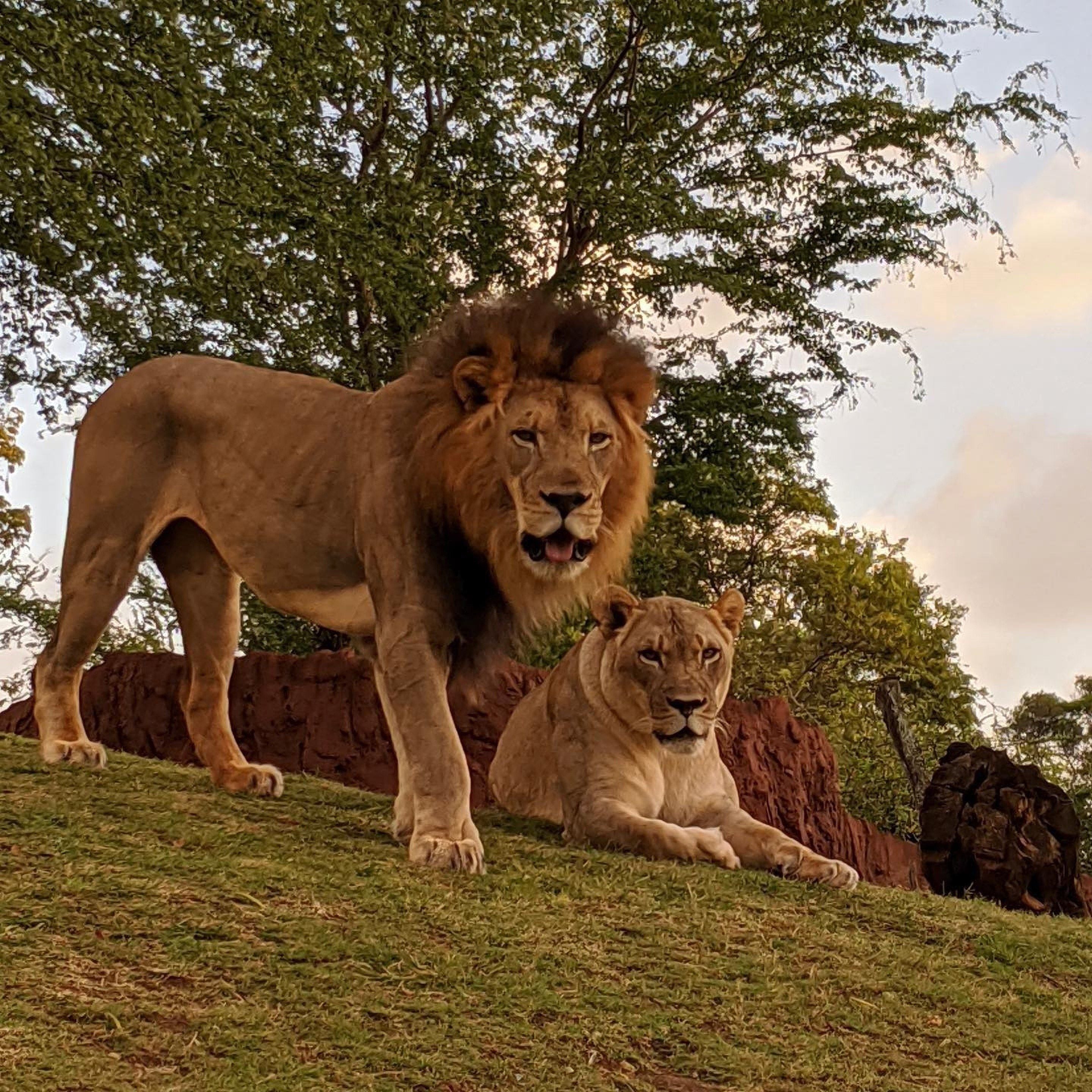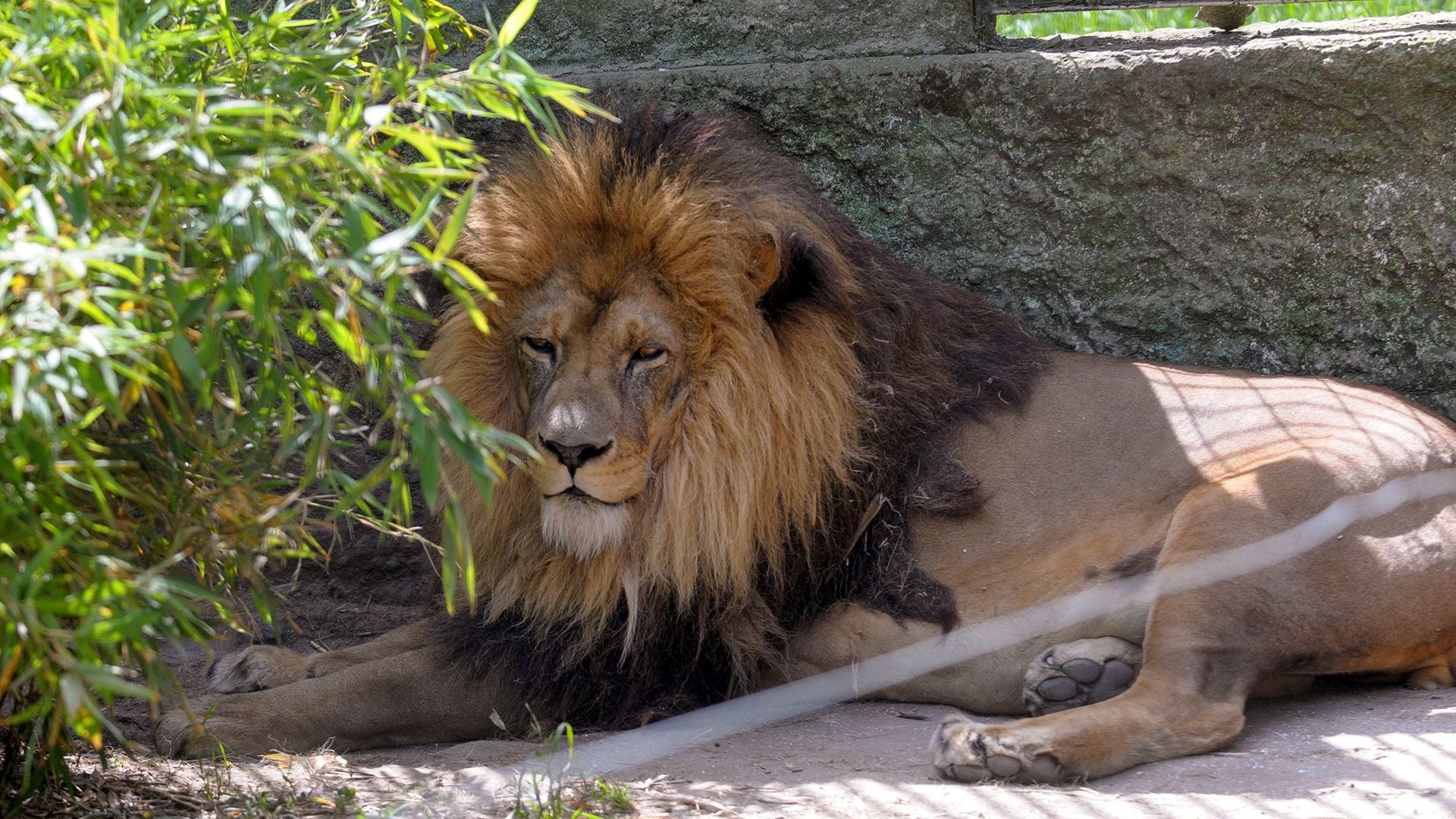
Lions are loving beings of their packs, but rather lonely. They protect their territory in a fierce way and have the ability to end a threat with just one blow. Although their fierce reactions are consistent with their needs to live in nature, scientists consider this condition a challenge to consider for lions living in reserve or in naturally controlled captivity spaces. Two conditions that increase every year due to the loss of their habitat.
A group of researchers who share part of their work with lions in the wildlife reserve in Dinokeng, in South Africa, found that with the intranasal application of a dose of the so-called “love hormone”, oxytocin, it turned wild beasts into less aggressive and dangerous animals that make animals encounters with lions are less life-threatening. His work appears on March 30 in the magazine iScience, which belongs to the group Cells.
These specialists, who have been working for a long time with oxytocin as a strategy, were able to conclude in a document that lions become closer and more accessible to their neighbors, in addition to having a less alert attitude towards strangers. This discovery, which may have a nice side, highlights some interesting conclusions that could contribute to conservation policies, because many reserves are forced to include herds alien to each other, which does not happen in nature, but in the face of the risk of species, it has become a ever more present.
Jessica Burkhart, first author of the paper and specialist Department of Ecology, Evolution and Behavior at the University of Minnesota in the United States, stated: “I've always loved lions. I got involved in research because I got tired of examining animal brains in the laboratory and wanted to study them in real life.” Lions live socially in packs while winning and defending their territories in the African savannah.

“Male lions, for example, will leave the herd when they are a couple of years old and meet other male lions they don't know and unrelated to, and they will form lifelong bonds,” Burkhart said. These types of behaviors indicated that lions, unlike cheetahs or solitary leopards, are biologically programmed to be social in some situations, which makes them a kind of interesting test for oxytocin intervention.
In mammals, oxytocin is the main molecule that strengthens social bonds. It arises inside a mother's brain when she looks into the eyes of her newborn, promoting feelings of well-being and happiness, while making the baby want to hold on to the breast to breastfeed. Scientists from different areas have found similar effects on other species. In fact, therapists even suggest that couples who experience problems may benefit from increased eye contact, which releases oxytocin. Working at the Wildlife Reserve in Dinokeng in the summers of 2018 and 2019, Burkhart and his colleagues at the University of Minnesota conducted a test using pieces of raw meat to lure lions to a fence, while trying to offer oxytocin inhalation. The hormone had to be sprayed directly through the nose, using a device similar to an old bottle of old perfume. That was the way to allow the hormone to travel directly to the brain.
After the experiment, the 23 lions who received oxytocin became more tolerant of the other convincing beasts in their space. This was measured by seeing how close a lion who is in possession of a desired object, in this case a toy, will allow others to approach it. “After they were treated with oxytocin, and we gave them their favorite pumpkin toy, we saw that the average distance between them decreased from about seven meters without treatment to about 3.5 meters after administering oxytocin,” Burkhart said.
The lions did not react when recorded roars of unknown intruders reproduced, unlike those in the control group who were not sprayed with anything or were sprayed with a saline solution.

“The reduction of hostility towards strangers was a particularly encouraging finding,” Burkhart confirmed, “because oxytocin is known to have a dark side in humans: while it promotes positive feelings in members of a group, it can increase rivalry with strangers. But our findings reveal that treatment could be useful in several scenarios.” According to the specialists, it could help unite unknown lions rescued from abusive situations, such as circuses or zoos in war zones, which are then placed in sanctuaries. Second, as cities in Africa expand urban territory, formerly belonging to lions, conservationists are forced to transport felines to private reserves where different herds are housed, and oxytocin could help prevent conflicts. It could also help wilderness relocations, helping lions “lean more into their new social environment to make them more curious and less fearful, leading to more successful bonding,” Burkhart says.
KEEP READING
Últimas Noticias
Debanhi Escobar: they secured the motel where she was found lifeless in a cistern
Members of the Specialized Prosecutor's Office in Nuevo León secured the Nueva Castilla Motel as part of the investigations into the case

The oldest person in the world died at the age of 119
Kane Tanaka lived in Japan. She was born six months earlier than George Orwell, the same year that the Wright brothers first flew, and Marie Curie became the first woman to win a Nobel Prize

Macabre find in CDMX: they left a body bagged and tied in a taxi
The body was left in the back seats of the car. It was covered with black bags and tied with industrial tape
The eagles of America will face Manchester City in a duel of legends. Here are the details
The top Mexican football champion will play a match with Pep Guardiola's squad in the Lone Star Cup

Why is it good to bring dogs out to know the world when they are puppies
A so-called protection against the spread of diseases threatens the integral development of dogs




